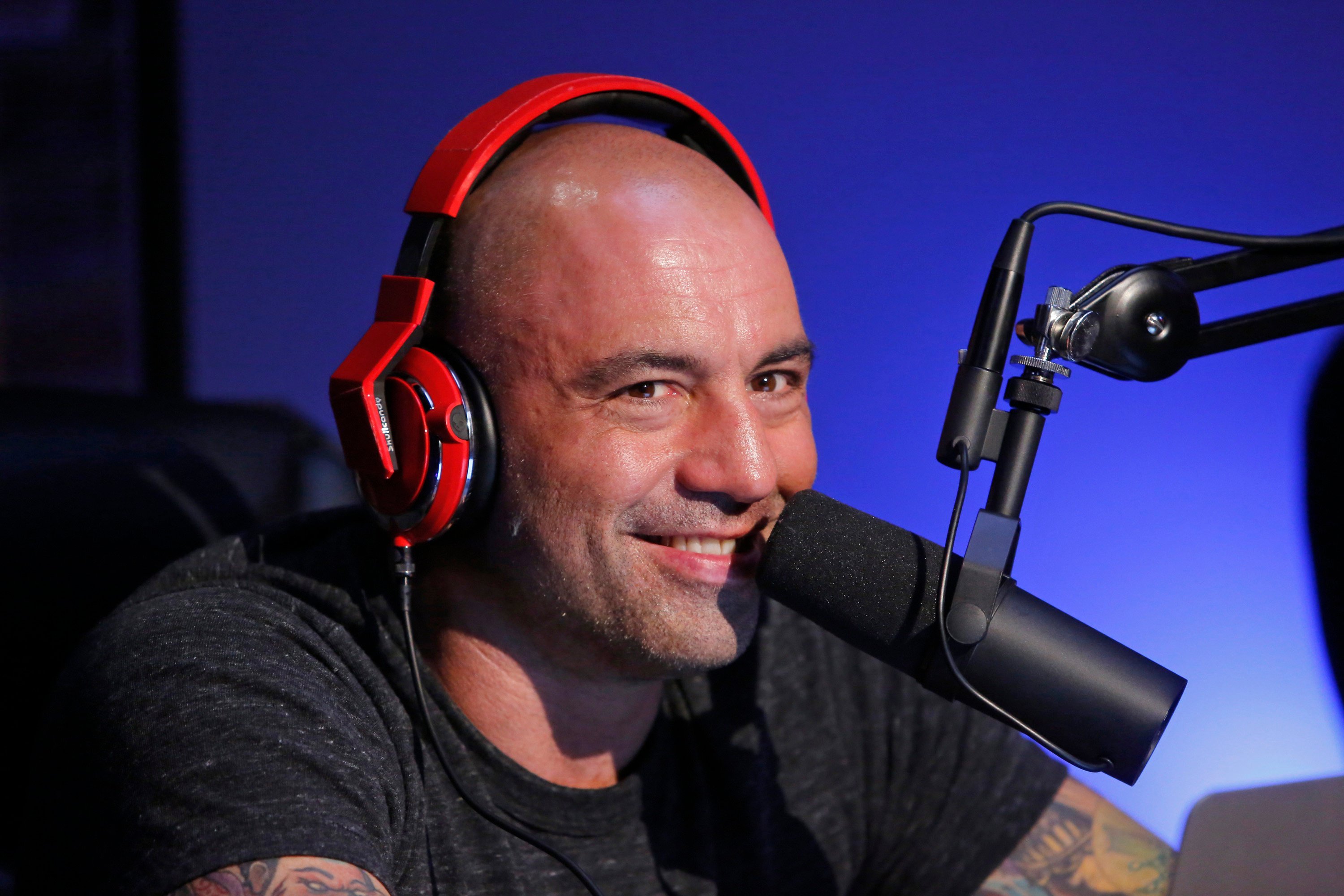Joe Rogan’s Interest in Animals and Conservation

Joe Rogan, a renowned podcaster and comedian, has expressed a deep-seated passion for animals and their well-being, advocating for their protection and conservation. His interest stems from a genuine love for nature and a strong belief in the interconnectedness of all living beings.
Joe Rogan’s Views on Animal Welfare
Joe Rogan strongly advocates for animal welfare, emphasizing the ethical treatment of animals. He often discusses the importance of understanding animal sentience and recognizing their capacity for suffering. His views are informed by his personal experiences with animals, his research into animal behavior, and his understanding of the complex relationships between humans and the natural world.
Joe Rogan’s Interactions with Zookeepers: Zookeeper Joe Rogan

Joe Rogan’s interest in animals and conservation extends beyond general discussions about wildlife. He has frequently engaged with zookeepers on his podcast, demonstrating a genuine interest in their expertise and the crucial role they play in animal care and conservation. These interactions have provided valuable insights into the complexities of zoo management and the challenges faced by zookeepers in maintaining animal welfare.
Joe Rogan’s Conversations with Zookeepers on the Joe Rogan Experience, Zookeeper joe rogan
Joe Rogan has invited numerous zookeepers onto his podcast, “The Joe Rogan Experience,” engaging in insightful conversations about their work and the ethical considerations surrounding zoos. These conversations have touched upon various aspects of zookeeping, including:
- Animal welfare and enrichment: Zookeepers have discussed the importance of providing animals with stimulating environments, enriching their lives beyond basic needs. They have highlighted the role of behavioral enrichment programs in promoting physical and mental well-being.
- Conservation efforts: Zookeepers have shared their experiences with conservation programs, explaining how zoos contribute to species preservation through breeding programs, research, and education.
- Public perception of zoos: Joe Rogan has explored the evolving public perception of zoos, acknowledging both the criticism and the positive contributions of these institutions.
- The future of zoos: Zookeepers have discussed the future of zoos in a changing world, highlighting the need for innovation and adaptation to address evolving societal expectations and conservation challenges.
Joe Rogan’s Perspective on the Role of Zookeepers
Joe Rogan has consistently expressed respect and admiration for the work of zookeepers, recognizing the dedication and expertise required for successful animal care. He has acknowledged the complex and often challenging nature of their job, which involves balancing the needs of animals with the expectations of the public.
“I think zookeepers are some of the most important people in the world. They’re the ones who are on the front lines of animal care, and they’re the ones who are really making a difference in the lives of these animals.” – Joe Rogan
Joe Rogan has also acknowledged the role of zoos in conservation, recognizing their contributions to research, breeding programs, and public education. He has emphasized the importance of zoos in raising awareness about animal welfare and conservation issues.
Joe Rogan’s Views on Zoos Compared to Other Conservationists
Joe Rogan’s views on zoos align with those of many conservationists who acknowledge the potential benefits of zoos in promoting conservation and education. However, he has also expressed concerns about the potential limitations of zoos, particularly regarding the ethical considerations of keeping animals in captivity.
While Joe Rogan acknowledges the importance of conservation efforts, he has also expressed skepticism about the effectiveness of traditional zoos in the long term. He has shown interest in alternative conservation approaches, such as wildlife sanctuaries and rewilding projects, which prioritize the well-being of animals in natural habitats.
Joe Rogan’s perspective on zoos is not without its critics. Some conservationists argue that zoos, regardless of their intentions, inherently compromise animal welfare and may not be the most effective means of promoting conservation. They advocate for a more holistic approach that prioritizes protecting natural habitats and supporting wild populations.
The Role of Zoos in Animal Conservation

Zoos play a multifaceted role in animal conservation, contributing to research, education, and breeding programs. While ethical considerations regarding animal welfare and habitat enrichment are crucial, zoos have demonstrated their impact on animal populations and ecosystems.
Research
Zoos conduct extensive research on animal behavior, physiology, and genetics. This research provides valuable insights into species’ needs and helps develop conservation strategies. For example, zoos have played a significant role in understanding the reproductive biology of endangered species, leading to successful captive breeding programs.
Education
Zoos serve as important educational centers, raising awareness about animal conservation and inspiring action. Through interactive exhibits, educational programs, and outreach initiatives, zoos connect people with animals and foster a sense of responsibility for their well-being. This education can influence individual behaviors and promote conservation efforts.
Breeding Programs
Zoos participate in species survival plans (SSPs) to manage captive populations of endangered animals. These programs aim to maintain genetic diversity and increase population numbers. By breeding animals in controlled environments, zoos can help reintroduce species into the wild or establish new populations.
Ethical Considerations
Animal welfare is paramount in zoos. Ensuring animals have adequate space, enrichment, and social interaction is essential. Zoos strive to create habitats that mimic natural environments, providing opportunities for animals to engage in their natural behaviors.
Impact on Animal Populations and Ecosystems
Zoos have contributed to the recovery of several endangered species. For example, the California condor, once on the brink of extinction, has seen its population increase thanks to captive breeding programs and reintroduction efforts. However, the impact of zoos on animal populations and ecosystems can be complex. Zoos can introduce non-native species or diseases, potentially disrupting local ecosystems.
Types of Zoos and Conservation Approaches
| Type of Zoo | Conservation Approach | Examples |
|---|---|---|
| Traditional Zoo | Focus on public education, captive breeding, and research. | San Diego Zoo, Bronx Zoo |
| Conservation Zoo | Prioritizes conservation efforts through partnerships with local communities, habitat restoration, and species reintroduction. | Durrell Wildlife Park, Omaha’s Henry Doorly Zoo |
| Open-Range Zoo | Emphasizes naturalistic exhibits with large enclosures and minimal barriers. | Taronga Zoo, National Zoo & Conservation Biology Institute |
| Safari Park | Provides immersive wildlife experiences in large, open habitats. | San Diego Zoo Safari Park, Disney’s Animal Kingdom |
Zookeeper Joe Rogan, known for his comedic and educational approach to animal care, often discusses the importance of understanding animal behavior. This is similar to how politician Owen Smith navigates complex political landscapes, requiring careful observation and strategic maneuvering. Just as Joe Rogan educates his audience about the intricacies of animal behavior, Owen Smith aims to inform the public about the nuances of political issues, emphasizing the need for careful consideration and informed decision-making.
Joe Rogan’s foray into the world of zookeeping is a testament to his diverse interests. While his podcast often features discussions on comedy, his fascination with animals led him to explore the world of zookeeping. It’s intriguing to consider how Rogan’s comedic sensibilities might intersect with his zookeeping endeavors, much like the dynamic between joe rogan adam sandler in the realm of stand-up comedy.
Whether he’s interviewing a zoologist or discussing the intricacies of animal behavior, Rogan’s unique perspective continues to captivate audiences.
